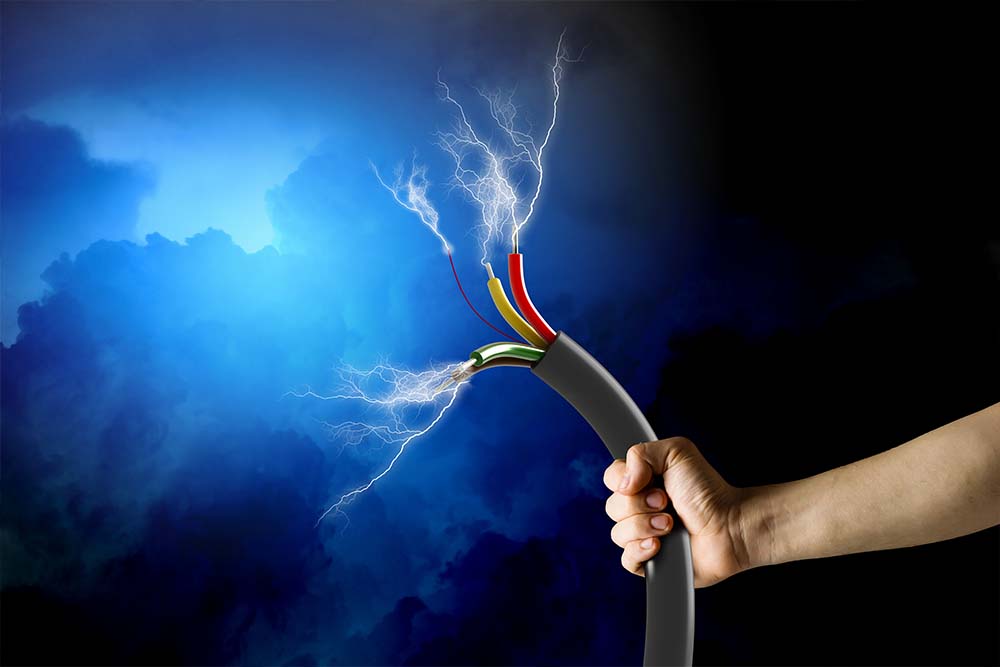Fundamentals of Electricity and DC Circuit Analysis - Level 3
Overview
You could be completely new to electrical engineering or already have a basic knowledge of the subject and need to improve more. Either way, you have come to the right place where Fundamentals of Electricity and DC Circuit Analysis – Level 3 course is designed to provide learners have a complete understanding of essential theories of direct current circuits. The completion of this course ensures that you are well prepared to advance in the subject.
The Fundamentals of Electricity and DC Circuit Analysis course comprises of lessons on series and parallel circuits, Ohm’s law and connection between current, voltage, and impedance. For a learner who just started with the basics of electricity and DC circuits, these areas of study provide fundamental knowledge they need to progress in the subject. Moreover, areas of study such as Kirchhoff’s laws will assist them to progress in network analysis and metering circuits.
This IAP accredited course is developed by the industry professionals who are well versed in the subject with years of experience. Therefore the course material which is provided to you at the registration includes theories as well the practical issues along with solutions for them. The knowledge you get from this course assists to advance further in the subject and land on your dream job. Even if you have background knowledge on the subject or not, Basic Fundamentals of Electricity and DC Circuit Analysis course provides knowledge and skills to help you reach higher.
Why You Should Consider Taking this course at Study365?
Study365 is a leading online provider for several accrediting bodies and provides learners the opportunity to take this course. At Study365, we give our fullest attention to our learners’ needs and ensure they have the necessary information required to proceed with the training.
Learners who register with us will be given excellent learning support, discounts for future purchases, and be eligible for a TOTUM Discount card and Student ID card with amazing offers and access to retail stores, the library, cinemas, gym memberships, and their favourite restaurants.
- About the Tutor
- Who is this course for?
- Learning Outcomes
- Entry Requirements
- Method of Assessment
- Certification
- Awarding Body
- Career Path and Progression

The founder and lead instructor of Power Systems Protection Training (PSPT), Graham Van Brunt graduated with a BSc. in Engineering from Queen’s University. He later continued his subsequent education at Wilfrid Laurier University. Graham is always passionate about his profession and enjoys mentoring students or speaking to an audience.
PSPT is an on-site training group that caters to engineers, managers, technologists and others in a similar profession and delivers tailored training to suit their needs. The fundamental areas covered through these courses include basic electrical theory, power infrastructure, digital circuits, relay protection, and theory.
For those who need to start a career as an electrical engineer or an electrician along with other professions which incorporate an understanding of alternating current can follow Fundamentals of Electricity and DC Circuit Analysis - Level 3.
- Understanding essential theories of direct current circuits
- Knowledge on series, parallel circuits and Ohm’s law
- Understanding the connection between current, voltage, and impedance
- Comprehending Kirchhoff’s laws to progress in network analysis and metering circuits
- Learners who are over the age of 16 and have a basic understanding of English Language, ICT, and numeracy can take Fundamentals of Electricity and DC Circuit Analysis - Level 3.
- A sound educational background is an advantage.
- The learner should have an understanding of basic math and linear equations.
- There are no formal prerequisites to take this course.
This is a knowledge-based course, and thus, will contain no method of assessment.
Upon the successful completion of the course, learners will be awarded an accredited certificate of completion for Fundamentals of Electricity and DC Circuit Analysis - Level 3 by iAP.
The International Awards for Professionals iAP is an awarding body established in 1999 that aims to promote a high educational standard. They hope to create online education that is trustworthy and credible. They are focused on raising the standards of online education and ensuring it is accessible to all. The iAP provides accreditation for a range of educational establishments and monitors and continually develops the educational standards of such institutions. Their globally recognised certifications give learners the opportunity to acquire the skills and knowledge needed to gain employment in the chosen fields.
The Fundamentals of Electricity and DC Circuit Analysis - Level 3 course is designed to progress your competency in alternating current in the subject field of electrical engineering. Taking this course makes you eligible to pursue further education as well as a profession. Successful completion of the course guarantees an accredited qualification that paves the way to a great career which requires the skills covered by the course. Here are some of the professions you are qualified to pursue with the knowledge you get from the course and once you complete all the areas of study in electrical engineering. Given below are job titles you can compete for, along with the average UK salary per annum according to https://www.glassdoor.com.
- Electrical engineer - £53,031 (approximately)
- Electrician - £44,229 (approximately)
Course Curriculum
| 1. Introduction to Basic Fundamentals of Electricity and DC Circuit Analysis course | |||
| 1.1. Introduction to Basic Fundamentals of Electricity and DC Circuit Analysis course | FREE | 00:06:00 | |
| 2. The Nature of Electricity | |||
| 2.1. The Nature of Electricity | FREE | 00:20:00 | |
| 3. Conductors and Insulators | |||
| 3.1. Conductors and Insulators | 00:08:00 | ||
| 4. Current and Electric Circuits | |||
| 4.1. Current and Electric Circuits | 00:12:00 | ||
| 5. Ohm’s Law | |||
| 5.1. Ohm’s Law | 00:06:00 | ||
| 6. Electric Power | |||
| 6.1. Electric Power | 00:12:00 | ||
| 7. Series and Parallel Circuits | |||
| 7.1. Series and Parallel Circuits | 00:18:00 | ||
| 8. Circuit Theorems | |||
| 8.1. Circuit Theorems | 01:30:00 | ||
| 9. Electric Fields and Capacitance | |||
| 9.1. Electric Fields and Capacitance | 00:26:00 | ||
| 10. Magnetism and Inductance | |||
| 10.1. Magnetism and Inductance | 00:49:00 | ||
| 11. Transient Response Capacitors and Inductors | |||
| 11.1. Transient Response Capacitors and Inductors | 00:10:00 | ||
| Handouts | |||
| Basic Fundamentals of Electricity and DC Circuit Analysis – Level 3 Questions | |||
| Completion Certificate Request | |||
| Completion Certificate Request | |||





Hayden Collins
Good course for engineering students.
Skylar Hudson
I am enjoying it thoroughly.
Taylor Robinson
Very detailed oriented course.